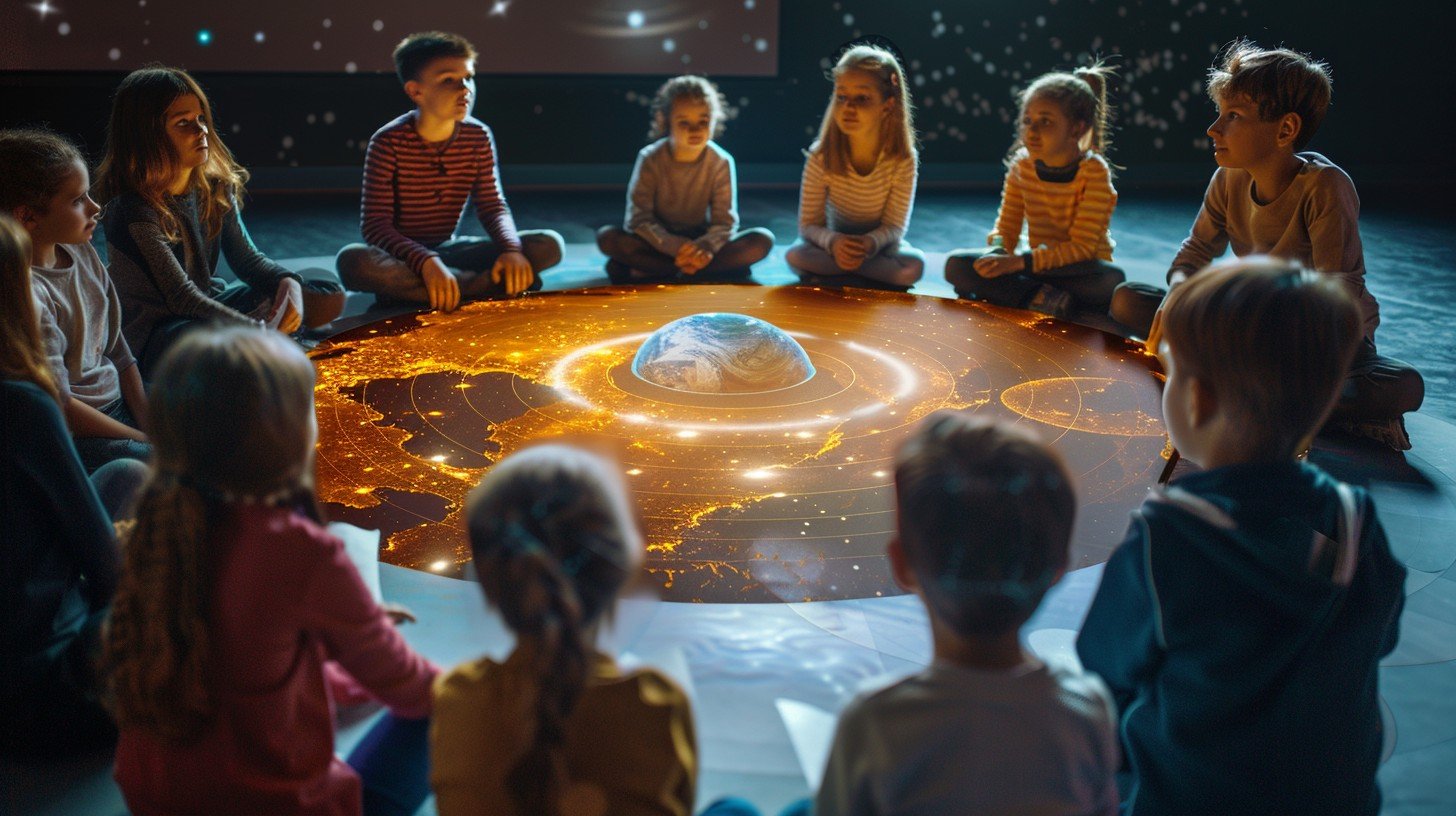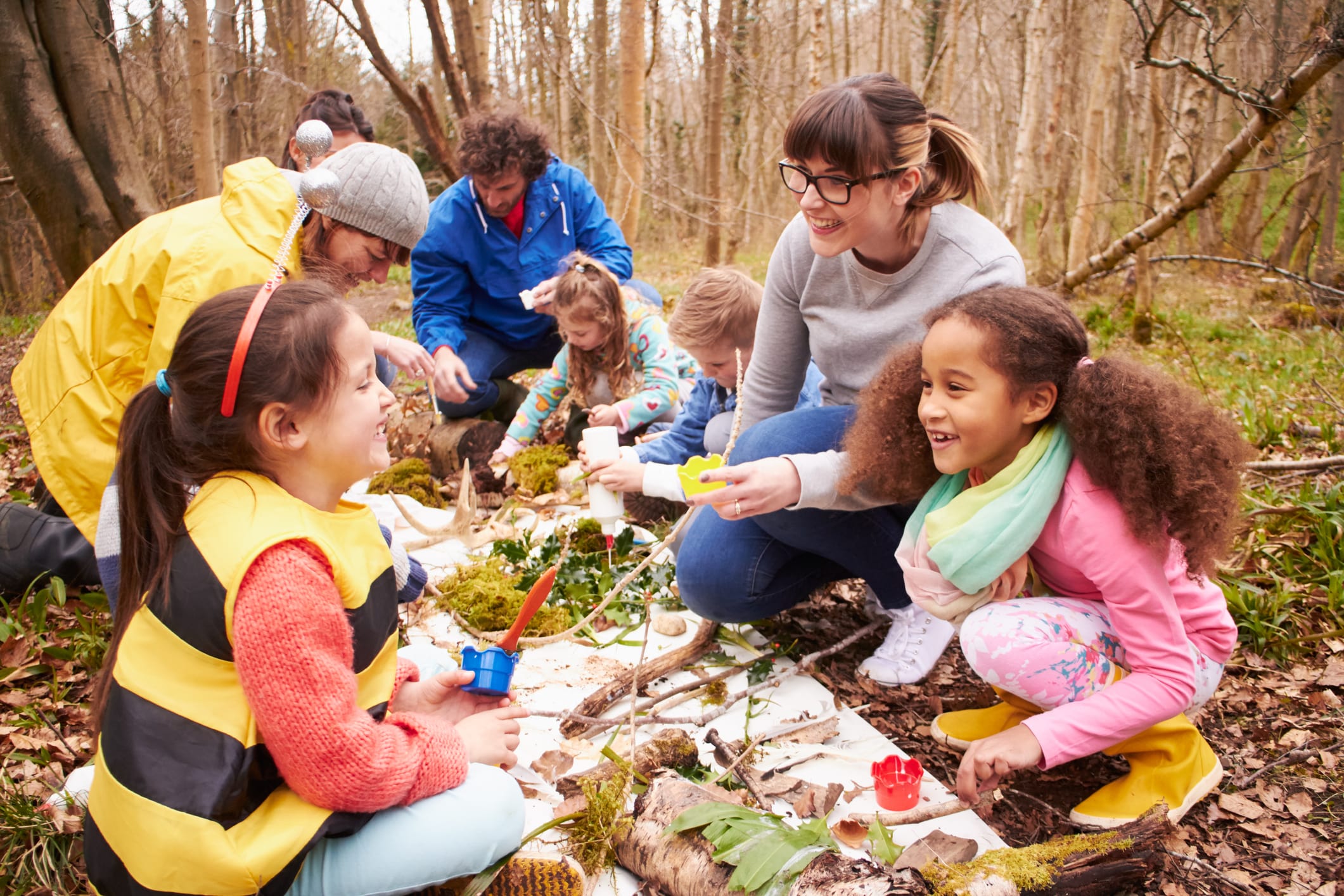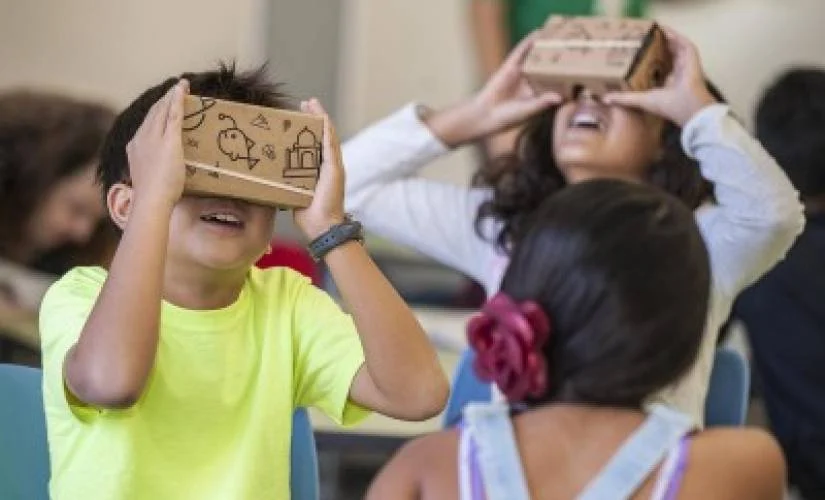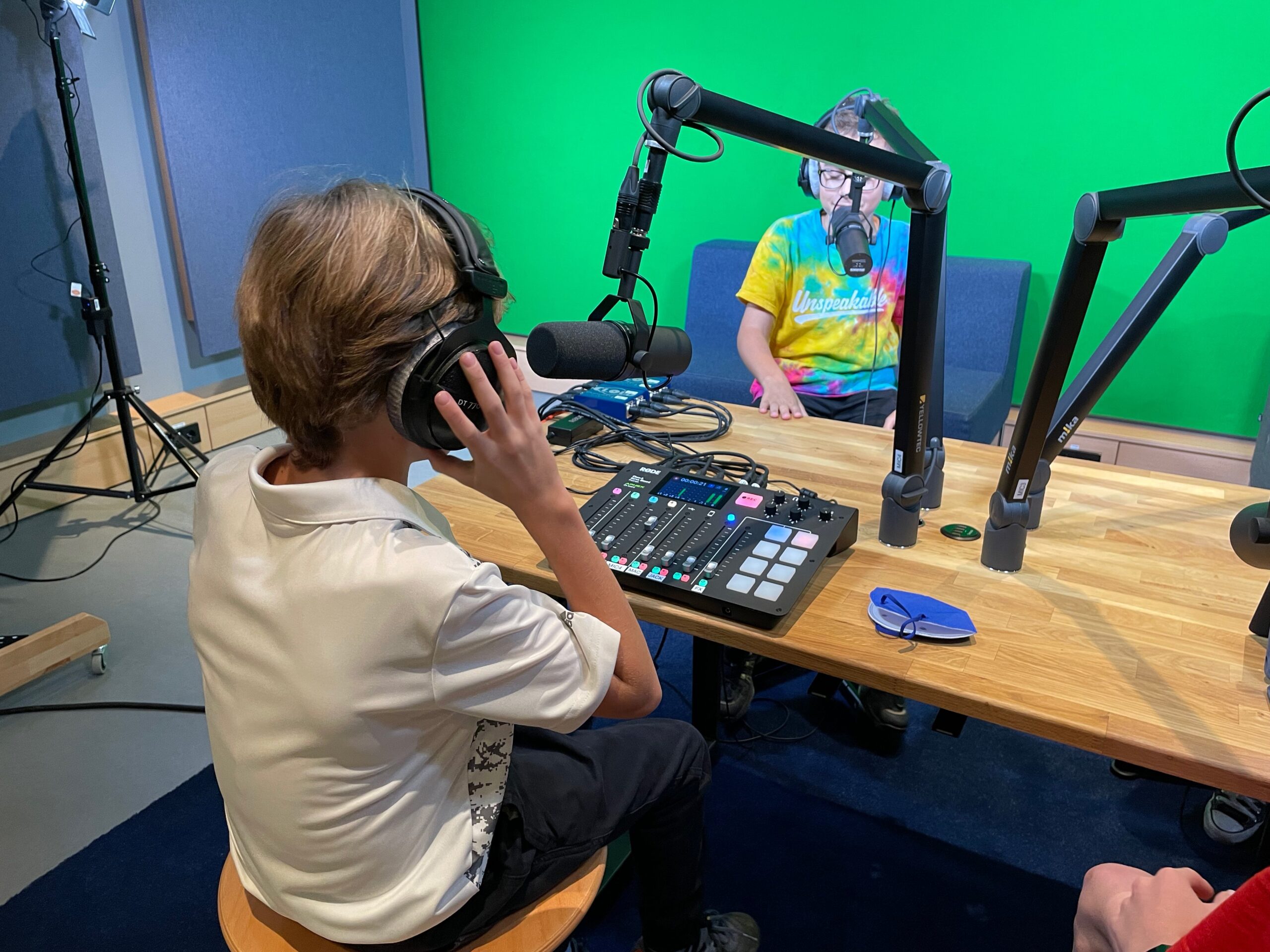game
do we live in a video game?
a multi-disciplinary course in media-making and the exploring the nature of reality

what if the world works more like a responsive computer game than we thought?
*
do we live in a video game? is an immersive, year-long course where middle schoolers become reality investigators — exploring big questions in science, consciousness, and storytelling, while learning how to produce a book first and follow-on podcast that share their discoveries with the world.
through games, hands-on experiments, and open-ended inquiry students dive into one of the most provocative ideas of our time — that our reality may be structured, coded, or composed in ways we’re only just beginning to understand.
we are taking one of the 21st century’s most widely discussed ideas — the possibility that we live in a computational or simulated universe — and opening it up to younger minds. in this course, we use the metaphor of a video game to explore complex scientific and philosophical ideas in a playful, age-appropriate way.
the result: young people who learn not only to question and explore, but to express — through collaborative storytelling, public dialogue, and podcast production. join us for a co-created exploration of the world we inhabit — and how we might live in it differently.
how the course works
do we live in a video game? is designed as a once-weekly, full-day immersion in creative inquiry, scientific exploration, and collaborative media production.
each session is structured around a four-part rhythm:
-
seed – students receive a provocation: a concept, guest talk, video, or demonstration
-
interact – they question, debate, and reflect as a group
-
produce – students work in mixed-age teams to script, record, or design podcast segments
-
review – the class reviews its output and prepares for the next production cycle
initially developed as a book and set of digital e-learning pods by a small group of students, the course will ultimately be captured as a 13 episode podcast Do We Live In A Video Game? — building a set of public-facing artifacts of their inquiry.

what they’ll learn
this course teaches students how to ask meaningful questions and make engaging media.
along the way, they’ll develop foundational skills in:
-
scientific reasoning (experiments, systems thinking, observation)
-
philosophy & metaphysics (identity, perception, reality)
-
collaboration & leadership (roles, feedback, group dynamics)
- storytelling & creative writing (narrative design, voice development, publishing)
-
production design (audio and video capture, editing, broadcast quality outputs)
along the way they’ll intensively explore the “simulation hypothesis” — a modern theory with roots in ancient traditions — not as fact, but as a metaphor for asking:
how do we know what is real? and what else might be possible?
about course instructor
do we live in a video game? is designed and led by stephen marshall (click here to view bio), an author/filmmaker, educator, and tech leader with over two decades of experience at the intersection of storytelling, team leadership, and systems thinking.
contact: stephen marshall (stephen@hoam.earth)
sample nodes
over the course of the year students will go on a journey of exploration across the key facets of our core inquiry:
what kind of reality are we living in — and who gets to shape it?
here are some proposed nodes (offered as a reference only, themes will be finalized during the course with input from the learners):
1. what is this place we live in?
perception & interface
every day, we see, touch, and move through the world — but how do we know what’s really there?
→ are we experiencing reality itself… or just a version shaped by our senses?
→ what if our brains aren’t showing us the world, but giving us a useful interface to it?
2. who’s playing this avatar?
consciousness & identity
if your body is a character, who’s behind the controls?
→ am i just my brain — or something more?
→ can i change who i am by changing how i play?
3. what are the rules of this world?
systems & design
games have physics, ethics, win conditions. so… what about life?
→ who makes the rules here?
→ can we change them?
4. is everything code?
physics & computation
beneath nature’s patterns, is something running — like software?
→ are we inside a simulation or just a really complex system?
→ what’s the difference?
5. what story are we inside?
narrative & reality-building
every game has a quest. every world has lore.
→ is life following a script — or are we writing it?
→ can i switch genres?
6. why is there pain in the game?
suffering, ethics & challenge
games have enemies and hard levels — sometimes life does too.
→ is struggle part of the design?
→ what do we learn when things get hard?
7. who built this world?
origin stories & cosmology
in every game, someone built the world… or it built itself.
→ is this place made?
→ is nature the coder? or is it us?
8. what happens if we’re wrong?
epistemology & open systems
what if everything we thought about reality is off?
→ how do we live in mystery?
→ can we learn from being lost?
each episode includes interviews with real-world thinkers, audio experiments, fieldwork, and roundtable reflections. students move from question to curiosity to co-creation — not just consuming ideas, but shaping them.
frequently asked questions
is this course right for my child?
this course is designed for curious, creative learners ages 11–14 — no prior media or science experience required. students work in mixed-skill teams and take on roles that match their strengths and interests.
what if my child doesn’t want to speak on a podcast?
that’s okay! there are many roles behind the scenes — including editing, research, writing, design, and directing.
is this a science class? a media class? a philosophy class?
it’s all three — and more. this course is interdisciplinary, meaning students learn to think across fields and make connections between ideas. it’s not about memorizing facts — it’s about learning how to learn.
will students use computers all day?
not at all. most sessions include discussion, experiments, creative planning, and physical-world exploration — with screen use focused on editing and production.
what kind of support do students receive?
every session is guided by experienced educators and media mentors. students receive individual feedback, coaching, and collaborative support.

